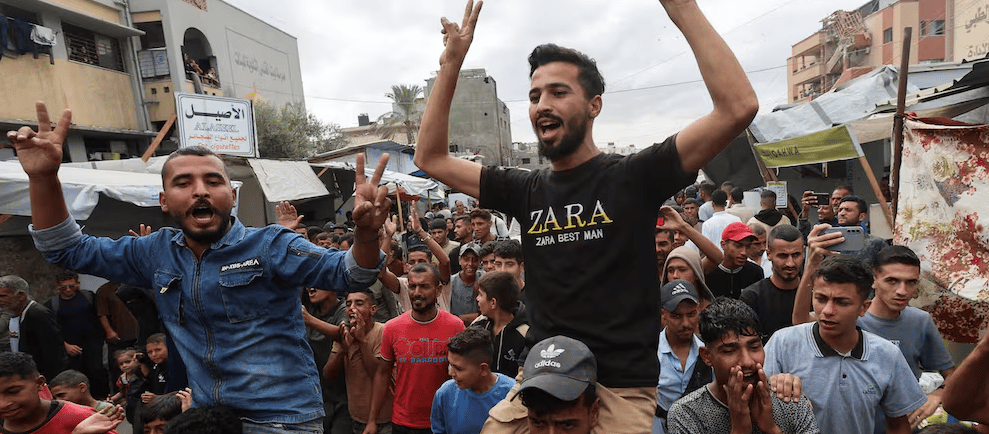Israel and Hamas Accept US-Mediated Ceasefire
Israel and Hamas have accepted a US-mediated ceasefire, marking a pivotal moment in the ongoing conflict. This initial phase brings a pause in fighting and the imminent release of hostages, offering hope for peace in the region.
WORLDFEATURED
10/10/20252 min read


Israel and the Palestinian militant group Hamas have formally agreed to the initial phase of a comprehensive peace plan, signaling a potential end to the devastating two-year war in the Gaza Strip. The landmark agreement, heavily brokered by the United States, Egypt, Qatar, and Turkey, involves an immediate cessation of hostilities, a prisoner exchange, and a phased Israeli withdrawal from the territory.
U.S. President Donald Trump announced the breakthrough, stating that both parties had “signed off on the first Phase of our Peace Plan,” which he asserted would lead to a “Strong, Durable, and Everlasting Peace.” Israeli Prime Minister Benjamin Netanyahu’s office confirmed the cabinet’s approval of the deal’s "outline" early Friday, clearing the final hurdle for implementation.
Netanyahu expressed gratitude to U.S. envoys, including Jared Kushner and Steve Witkoff, for their roles in facilitating the agreement. As part of the enforcement mechanism, around 200 U.S. military personnel will be deployed to monitor compliance with the truce (while not entering Gaza).
The announcement has been met with cautious optimism. Advocacy groups—both Jewish and Palestinian—welcomed the breakthrough, while urging vigilance and accountability in its execution. Many observers view this as the most credible ceasefire attempt since fighting began in October 2023 following Hamas’s attack on Israel.
The immediate relief brought by the Phase One agreement is quickly giving way to intense political scrutiny regarding the unresolved terms of the subsequent phases, particularly concerning the long-term future of Gaza.
While the deal’s initial stage has been approved, deep divisions remain over the ultimate fate of the conflict. Hamas insists the full agreement guarantees a complete Israeli withdrawal from the Gaza Strip and a permanent end to the war. Conversely, hard-line factions within Prime Minister Netanyahu’s ruling coalition have fiercely resisted any permanent halt to military operations, vowing that the war must resume to fully eradicate Hamas’s military and political capabilities once all hostages are returned.
Crucially, the broader 20-point U.S. peace plan calls for Hamas’s disarmament and the establishment of a reformed governing authority in Gaza, requirements that the militant group has yet to explicitly endorse, setting up what mediators warn will be protracted and complex negotiations for the second and third phases.
International reaction has been overwhelmingly positive, with leaders across the globe welcoming the ceasefire as a critical turning point and urging both sides to adhere strictly to the terms.
U.N. Secretary-General António Guterres called the deal a “momentous opportunity” and pledged the U.N. would scale up relief efforts and reconstruction planning in the devastated enclave. Key mediators, including the leaders of Turkey and Egypt, hailed the agreement as a step toward regional stability, while European Union officials described it as a “major diplomatic accomplishment.”
Indian Prime Minister Narendra Modi on Thursday welcomed the first phase of the U.S.-brokered Israel-Hamas peace plan, praising the leadership role of Israeli Prime Minister Benjamin Netanyahu and expressing hope that the agreement would bring respite to civilian populations and pave the way for lasting peace.
The Prime Minister also made phone calls to both U.S. President Donald Trump and Israeli PM Netanyahu to convey his congratulations. He characterized the Gaza agreement as “historic” in his conversations and reviewed bilateral matters, including trade, in his discussion with Trump.
Observers note that Modi’s reaction aligns with India’s evolving position in the Israel-Palestine dispute: maintaining strong strategic ties with Israel, while emphasising humanitarian concerns and opposing terror.
